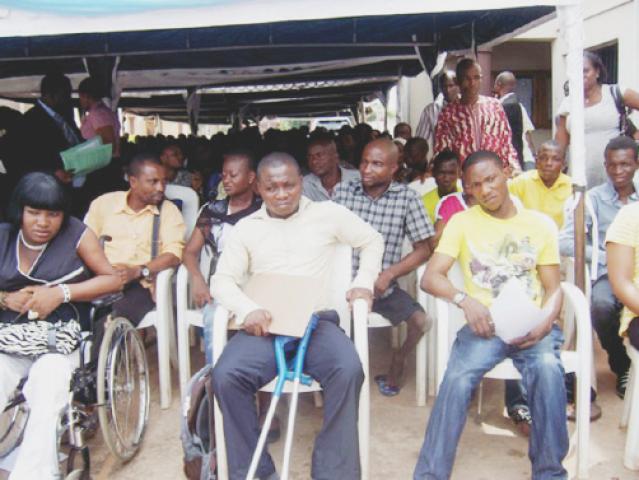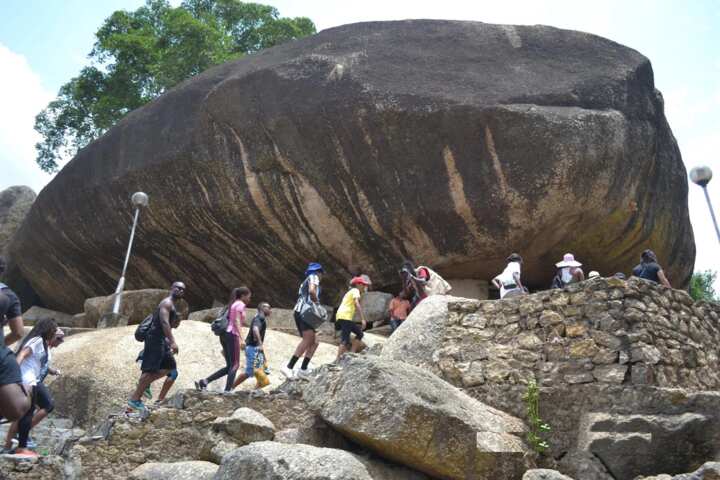This was revealed alongside other countries, such as Argentina, China, Egypt, India, Saudi Arabia and Indonesia, among others. The projection was contained in its latest World Economic Outlook (WEO) update for April 2025, released on Tuesday, April 22.
It however equally disclosed a projection of global economic reduction by 2.8 per cent. According to the IMF, the rapid escalation of trade tensions and exceptionally high levels of policy uncertainty are expected to significantly impact global economic activity.
It's noteworthy that the IMF has three critical missions in accordance with its mandate: furthering international monetary cooperation, encouraging the expansion of trade and economic growth, and discouraging policies that would harm prosperity.
To fulfill these missions, the IMF member countries work collaboratively with each other and with other international bodies. This has hitherto been a standard mode of operation among the membership of the prestigious global monetary body.
Any right thinking and discerning Nigerian, either home or abroad, is expected to thoroughly x-ray such a report that might seem confusing in the eyes of an average citizen of the country. In view of this, we mustn't shy away from delving deeply into the highly sensitive matter.
One may begin to wonder how the country's economy is projected to grow whereas over 60 per cent of the citizenry are presently making frantic efforts to survive, let alone making a meaningful life among themselves.
The economy of any country in the world is primarily rated by its Gross Domestic Product (GDP), which measures the total market value of all final goods and services produced within the country. Another pertinent factor that determines a nation's economic performance is her Gross National Income (GNI) per capita.
While the GDP reflects the total value of goods and services manufactured within the country's borders, the GNI per Capita metric takes into account the income earned by its residents, both domestically and abroad, and divided by the total population.
How could the Nigeria's GDP be expected to rise when virtually every manufacturer and service provider in the country is crying woefully on a daily basis over the uncalled environment they are currently being faced with? High cost of energy and bloated taxation have endangered the activities of these firms, thereby affecting the cost price of commodities and services.
Since the cost price, which is occasioned by the production cost, directly affects the selling price, it drastically reduces the purchasing power of the final consumers whom are invariably found in helpless condition as they are seen lamenting in various markets. This is the current obvious state of Nigeria's producers and consumers.
The GNI per Capita, on the other hand, is quite unbearable to assert the least. This metric, which signifies the income earned by the residents of the country taking into cognizance its population, has become a thing of intense worry for any rational being in Nigeria.
While the income of the MSMEs' owners is apparently a worrisome situation owing to the huge reduction in quantity demand from the consumers, the salary/wage earners have been left to groan since their monthly take-away could barely afford their basic needs. The workers are reportedly lamenting that the recently approved national minimum wage of 70,000 naira is yet to be fully implemented by the government.
An average worker in the country is no longer concerned about savings as part of their monthly obligation, rather, they are only making frantic efforts to ensure the salaries are enough to cater for their families' feeding and other basic needs. In other words, they are struggling for survival as I earlier stated.
The other day, I read a report from a government ally that the states in Nigeria now receive about three times of what used to be their allocations from the federal government. According to the reporter, the so-called improvement was as a result of the excess savings emanating from the fuel subsidy removal.
The informant had notified Nigerians, albeit ignorantly, that petrol subsidy was removed, so the president and the governors could make more money, without comprehending that such a financial influx ought to primarily be channelled into capital projects as well as debt servicing.
The Nigeria's 2025 budget is anchored on a benchmark oil price of 75 USD per barrel. As of 22nd April, the Brent crude oil price was sold at 67.22 USD, which is about 11 per cent lower than the pegged amount. This unequivocally implies that more sacrifice is required by the already-weary citizens, towards financing the budget.
For Nigeria to anticipate a robust economy within the 2025 fiscal year, inflation must be critically tackled. It's not anymore news that astronomical inflation in our various markets has endangered the citizens' purchasing power, thereby crippling households' economies.
For this to be actualized, two factors mustn't be taken for granted: energy cost and taxation. These two tools have continually posed severe danger to goods and services within the shores of the country, yet apparently nothing is being done to alleviate the quagmire.
The high cost of energy sources, such as fuel basically, will continue to cripple prices of goods in the market, as it's noted that energy billing directly affects trade and investment anywhere across the globe.
Taxation, on its part, which is equally on the high side in the present days' Nigeria, remains one of the major reasons the service providers, like the telecom and TV satellite firms, have chosen to "kill" Nigerians over the cost of services being rendered to them. Even the pitiable workers' salaries are reportedly faced by outrageous taxes.
Tax evasion is also a disturbing scenario that needs to be addressed. This illicit act, in overall, typically involves misrepresentation or concealment of income, falsification of financial records, or exaggeration of deductions to lower taxable income. This financial menace must be critically tackled by ensuring the evaders are fished out and meant to face the wrath of the extant laws.
More so, the Nigeria's Foreign Exchange (FX) market is still bleeding. As at Friday, 25th April 2025, the Naira traded officially at #1599.55 to the US dollar, showcasing a seeming endless struggling physiognomy for the country's economy. The continued floating of the Nigerian currency is seriously telling on her international trade system.
These, and many more, are the reasons the economic authorities in the country, such as the Central Bank of Nigeria (CBN) and the Finance Ministry, must decisively work on the country's monetary and financial policies towards experiencing a paradigm shift.
As the concerned bodies carry out the suggested innovations, the government must learn to invest mainly on capital projects, such as physical infrastructure, education and healthcare, as well as endeavour to service the country's scary debts headlong. Think about it.
FN Blog





















